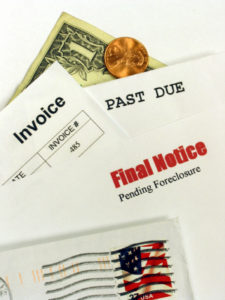Avoiding Bad Debts Part 3: Send Reminder Bills.
Developing a Payment Policy Part 2
Ever needed a reminder to complete a task? Maybe to get your dog from the groomer, return the Redbox DVD you rented or possibly to pick up milk from the grocery store? You end up leaving a trail of notes for yourself, a note on the fridge at home, a sticky note on your desk at work, an Outlook calendar reminder, an alert on your phone, and you may even ask your spouse to remind you later.
 During the rush and furiousness of work, tasks can sometimes go undone because they are just forgotten. And all too often individuals forget to do the menial tasks while completing the most desirable tasks. Paying bills seems to fall into the former category rather than the latter.
During the rush and furiousness of work, tasks can sometimes go undone because they are just forgotten. And all too often individuals forget to do the menial tasks while completing the most desirable tasks. Paying bills seems to fall into the former category rather than the latter.
Life can be crazy and sometimes we have to set reminders to remind ourselves it seems. Your customers can be the same way, they need reminders, and you can help them.
Most entrepreneurs know that it’s critical to send out billing reminders as soon as payment is past due. You can provide a benefit to your customers by reminding them of when bills are coming due. By reminding your customers in a friendly and professional way, you can eliminate the “forgetfulness” factor when you are owed money.
The other significant advantage in sending a prompt “payment coming due” reminder is that you have an opportunity to send marketing materials directly to your customer. Those materials could be advertising for promotional periods, or creating awareness regarding a new service or product you are providing, or you could even send out a survey that would help you understand your customers’ needs more clearly. These can be influential opportunities for receiving valuable feedback. Sending marketing information directly to a customer who has already purchased from you could mean another sale is just around the corner. You already know what your customer purchased so ask them what they like about their purchase and then show them all the other accessories they are missing.
Bottom line, actively communicating with your customers is a great way to build and maintain a positive relationship. If you are waiting until payment is past due to begin communicating with your customer, then you are missing out on opportunities to have amicable interactions with your clients.
Equally important to friendly “payment coming due” reminders are “payment due” reminders. Immediately sending out reminders when the customer is past due and clearly communicating the amounts still owed is critical to getting paid. If you have penalties or fees, this is where you may want to include potential future charges if they do not pay promptly. It is also way too late if you are only sending out payment reminders when the customer is running thirty or sixty days past due. Many customers are so busy that they can likely forget a bill that hasn’t been paid but once reminded they will often pay because they realize the bill is past due.
Remember that your customers are running their businesses too and that sometimes means they focus on tasks other than paying you. A quick follow up will often be all that is necessary to receive a payment on time.
And finally, remember to keep detailed records of all transactions and communications with your customer. You will need the dates and times of your calls, letters, and any electronic communications about late payments if the case for collections or legal action arises. You may also need this information when you contact the customer.
We hope that you find these billing reminder suggestions valuable and productive. And when you have debt collection issues and need someone on your side, or maybe you want a better understanding of how you can recover bad debts, know that Burt and Associates is your go-to expert. Please feel free to contact us today through our website, email, or by phone. Our representatives are available to help you today.
Commercial Collection Topics
- Avoiding Bad Debts Part 1 Start by developing a written payment policy. One of the best actions you can take to help customers pay promptly...
- My Customer Hasn’t Paid Me Four important things that can significantly increase your chances of getting every penny owed to you. 1 In small business...
- What is next after account goes past due? So what does it mean when your debt goes into the hands of a collection agency. When the past due...
- Mini-Miranda Rights Mini-Miranda rights were established by the FDCPA of 1977 to guard consumer protection. It gave consumers legal protection against abusive...















